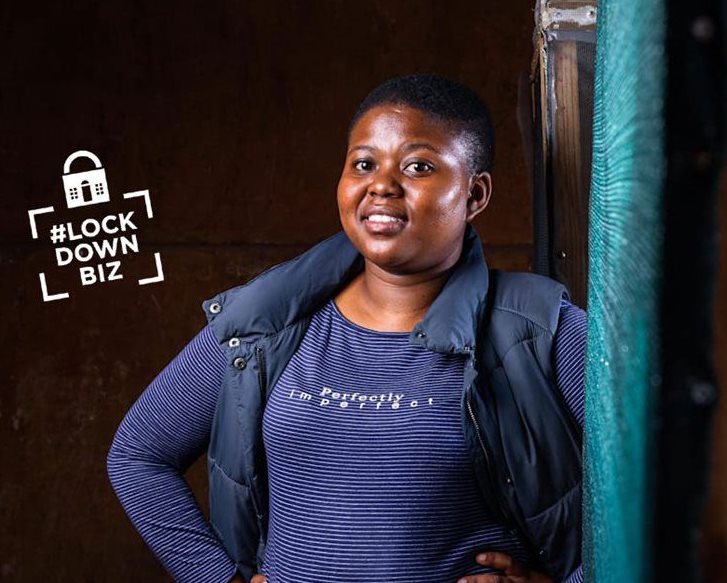






Montsho Sustainable Project is a company founded in 2019 by Tebogo Bathebeng. The company, still in pre-launch phase, is an ecological company that provides feed produced by Black Soldier Fly larvae.
Inspired by nature and the ecosystem, Tebogo Bathebeng’s objective is to create long term natural growth solutions for communities and businesses by carefully harvesting Black Soldier flies and their larvae. By using the flies’ larvae, they assist the earth’s natural balance and flow by pushing nutrients back into the earth and into the agricultural system.
Tebogo Bathebeng, a solopreneur, shares with us how the nationwide lockdown has impacted operations and how it has adjusted.
My business is in pre-launch phase and Covid-19 has slowed the development of my business, with the lockdown and all the restrictions on movement I have not been able to implement a number of plans I have been working on.
With the delay I have had a chance to tweak my business model and have decided to explore a social franchise model post the pandemic and have started developing what I could possibly need in this regard.
 How did you prepare for the lockdown?
How did you prepare for the lockdown? In preparation for the lockdown I got personal supplies such as books and puzzles; I have also signed up for online courses on Acumen to help me get through the lockdown and keep my mind active. For the business I bought material to start building our prototype and upgrade our data system to ensure I have a clear picture of my business going forward.
The biggest challenge I am experiencing is the access to resources due to a number of businesses being closed, this makes getting necessary supplies to complete the prototype difficult and has challenged me to think of temporary solutions to implement whilst we wait for restrictions to be eased.
I am currently in the ideation phase of my business and require a lot of technical support in entomology, bio-manufacturing and engineering with research and prototyping, this will help bring the social franchise model to life.
With the lockdown in place, we are still able to source waste generated by neighbours and a local bakery to feed our larvae. The lockdown has also given me time to rework my model and found ways of making it work efficiently. I have also improved my recordkeeping, projections and keeping an eye on the business overheads as well as my personal spending.
Being a solopreneur in an isolated area, I have had to find ways of keeping in touch with my networks and keeping abreast with all the updates in the agricultural and entrepreneurship landscape.
I have also paid extra focus to my mental health, putting in measures that will help me get through this challenging time.
 Are you communicating with your customers? If so, how?
Are you communicating with your customers? If so, how?This has been a good time as someone who is about to launch to look at what other brands have doing and how they are managing the crisis. Looking at brands such as Outsurance, Clicks, Dis-Chem and Global Citizen. Exploring all the various platforms and how to best leverage these tools to best communicate with customers, keeping them engaged with the brand and assisting them.
People will want sustainable solutions. With the possible increase in unemployment we will be needing a big boost in small to medium businesses to help all absorb the scores of people who will possibly lose their jobs. Starting our social franchise model, we hope to contribute to this providing income opportunities for many.
Being in the stage I am in and the area I operate in, I am in a fortunate position to innovate all the time; making use of items such as old fridges and wardrobes, upcycling them into the different equipment we need. Growing in the pandemic has given me an idea of how the business operates during a crisis and sparked ideas on how to possibly make the business “pandemic resistant and ensure it operates smoothly in trying times.
The biggest lesson I have learnt is the importance of agility, being responsive rather than reactive and finding ways of addressing big changes in a speedy manner. Another lesson I have learnt is the importance of good financial management in a business, having reserves to weather such changes is important and can help with a business’s survival.